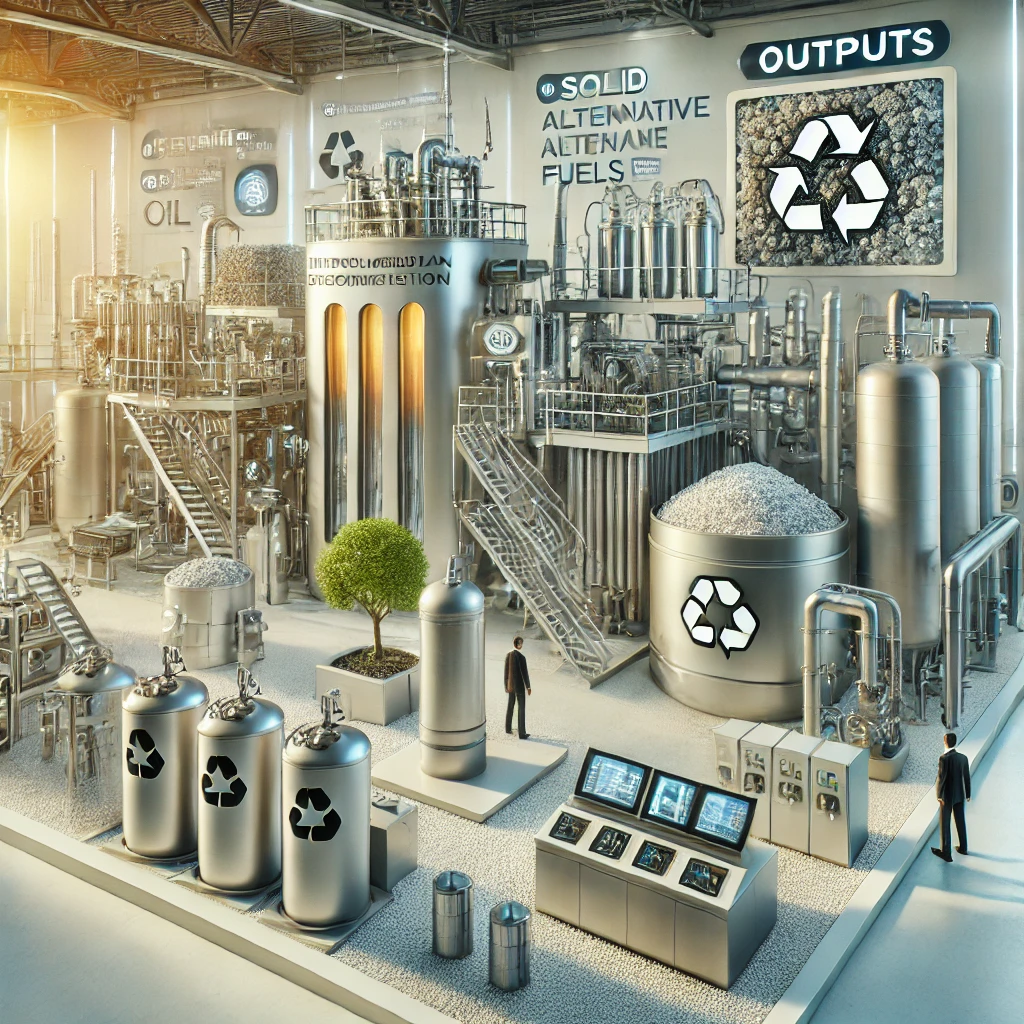Competitive transformations of thermal depolymerization technology for TBV processing
In the context of the global environmental crisis, modern waste processing technologies play a key role in creating a sustainable future. One such technology is thermal depolymerization, an effective method for processing organic high-molecular materials such as plastics, solid alternative fuels (SAFs), and sewage sludge. This technology offers a new level of solution to the problem of recycling complex waste and creating secondary resources with minimal impact on nature.
What is thermal depolymerization?
Thermal depolymerization is the process of decomposition of high molecular weight compounds (plastics, polymers, organic materials) under the influence of high temperatures and pressures in the absence of oxygen. As a result, long polymer chains are broken down and the materials are broken down into simpler compounds, such as:
- Synthetic fluids (e.g. petroleum);
- Gas (with high calorific value);
- Solid residues (carbon material).
These products can be used as secondary raw materials for industry, energy sources, or even as fuel for the energy sector.
Competitive advantages of thermal depolymerization technology
1. Deep recycling of complex materials
- The technology allows the processing of polymers that are difficult to process using standard methods (for example, multilayer plastics or mixed waste).
- Works effectively with sewage sludge, which is usually difficult to dispose of due to moisture and complex composition.
2. Energy benefit
- Depolymerization produces secondary products: synthetic liquids, gas (with high calorific value), and solid residues (e.g., carbonaceous material).
- The resulting products can be used as:
- Fuel (synthetic oil, gas) for industrial needs.
- Raw materials for the chemical industry (plastics, lubricants, additives).
3. Environmental friendliness
- Significant reduction in the volume of waste going to landfills.
- Minimal emissions of harmful substances thanks to a sealed processing process and emission control.
- Reduced carbon footprint compared to other methods such as incineration.
4. Economic efficiency
- High added value of secondary products (synthetic oil, gas), which allows to compensate for installation costs.
- The ability to work with a wide range of raw materials (from plastics to organic waste) reduces dependence on limited flows.
5. Flexibility and scalability
- The technology is suitable for both large industrial enterprises and regional solutions.
- Easily adapts to different types of waste, making it versatile.
6. Security and automation
- The process is automated, which reduces the risk of human error.
- The tightness of the system minimizes the risk of hazardous gases entering the atmosphere.
7. Minimum balances
- The depolymerization process leaves only minor solid waste that can be recycled or used (e.g. as construction additives).
8. Stable product quality
- Unlike mechanical or chemical processing, the depolymerization process provides a stable yield of high-quality products regardless of the starting material.
Prospects and applications
Thermal depolymerization technology opens up new horizons for waste recycling. Its potential includes:
- Reducing dependence on fossil resources through the use of secondary products.
- Solving the problem of solid waste landfills.
- Energy independence through the production of fuel and gas from waste.
Its implementation can significantly improve the environmental situation in cities, reduce the number of landfills, and promote sustainable industrial development.








